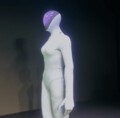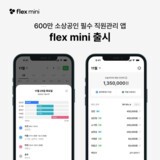OpenAI’s AI video generation app ‘Sora’ has recorded a remarkable 470,000 downloads on its first day after launching the Android version, sparking an explosive response in the global market. This figure surpasses the iOS version’s first-day installs (about 110,000) by more than fourfold — a sign that AI video creation tools are rapidly spreading to mainstream users.

470,000 Downloads on Android’s First Day — Four Times iOS
Launched on November 4 (local time), Sora was released simultaneously in seven countries — South Korea, the United States, Canada, Japan, Taiwan, Thailand, and Vietnam.
According to mobile analytics firm Appfigures, the estimated 470,000 downloads on Google Play show a much faster adoption rate compared to the invite-only iOS version.
The success is partly due to differences in platform accessibility. While the iOS version was limited to the U.S. and Canada, the Android version was released broadly across multiple regions, lowering the entry barrier for users.
“Text to Video” — Simplifying AI Video Creation
Sora automatically generates videos based on text prompts entered by users.
The resulting clips can be viewed in a vertical scroll feed similar to TikTok, and the ‘Cameo’ feature allows users to insert their own or others’ faces into generated videos.
Unlike simple image generation, Sora takes a step further by automatically composing short narrative videos, gaining traction not only among creators but also general users.
Upcoming Features Raise Expectations
OpenAI plans to roll out several new features for Sora in the near future.
These include a ‘Character Cameo’ option to feature pets or inanimate objects, a basic editing tool to combine multiple clips, and a customized feed that highlights videos from followed creators.
Such updates are expected to boost user engagement and hint at Sora’s evolution from a mere video generator into a “social AI creative platform.”
Challenges and Controversies
Despite its popularity, Sora faces ethical and legal controversies.
Some users have generated videos mocking historical figures like Martin Luther King Jr., leading OpenAI to implement stricter content moderation policies.
Additionally, the use of the term ‘Cameo’ has sparked a trademark dispute with the well-known celebrity video platform of the same name.
Experts also point out issues related to AI video realism, copyright, and portrait rights, emphasizing the need for clearer safeguards.
Korea: A Key Testbed for AI Video Adoption
South Korea, one of the seven launch countries, has emerged as a major contributor to Sora’s initial download surge.
With its high video consumption culture and a vibrant community of MZ and Gen Z creators, the Korean market is playing a pivotal role in accelerating Sora’s popularity.
Experts say this marks a turning point where AI video generation moves beyond tech demos into real consumer-driven content innovation.
By Ju-baek Shin | jbshin@kmjournal.net
- OpenAI to Allow Adult Conversations on ChatGPT from December
- OpenAI’s “Adult 19” Announcement and the Unsettled Question of Algorithmic Responsibility
- OpenAI’s Video SNS App ‘Sora’ Surpasses 1 Million Downloads Within Five Days
- OpenAI’s “Sora” Faces Backlash Over Unauthorized Use of Popular Characters ...Copyright Lawsuits Loom
- “ChatGPT Causes Mental Illness”...OpenAI Faces Class Action Lawsuit in the U.S.
- Masayoshi Son’s AI Gamble: Selling Nvidia, Going All-In on OpenAI
- OpenAI Unveils GPT-5.1 in Seoul: Adaptive Reasoning, Personalized Tone and a Full Suite of Next-Gen Upgrades
- OpenAI Ranked as Silicon Valley’s Second Most Vulnerable “AI Bubble” Company as Mounting Losses Raise Concerns

![[동학] 카카오톡 친구탭, 결국 12월 롤백… “격자형 피드는 선택 옵션으로”](https://cdn.kmjournal.net/news/thumbnail/custom/20251126/5517_10550_1119_1763853080_120.jpg)


![[테크 칼럼] 제미나이3, GPT-5.1을 넘다…AI는 이제 ‘일을 대신하는 시대’로 간다](https://cdn.kmjournal.net/news/thumbnail/custom/20251126/5457_10454_4847_1763621329_120.jpg)



![[낭만 테크 시대] AI 대항해 시대](https://cdn.kmjournal.net/news/thumbnail/custom/20251126/5603_10714_4334_1764121414_160.jpg)

